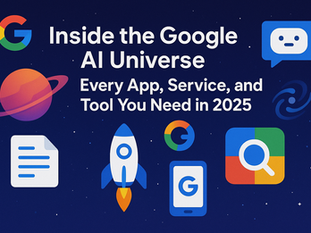
Influencer Tech Reviews: Are They Just Paid Ads in Disguise?
0
9
0
In the age of endless scrolling and aspirational lifestyles, influencers have become a dominant force in shaping consumer decisions. From fashion hauls to travel vlogs, their recommendations feel personal, relatable, and often, more trustworthy than traditional advertising. This is especially true in the fast-paced world of tech, where a glowing review from a favourite YouTuber can send sales skyrocketing.
But here’s the million-dollar question: when an influencer raves about the latest smartphone, gaming console, or smart home gadget, are we witnessing a genuine, objective review, or a cleverly disguised paid advertisement?
The lines, it seems, are blurring faster than a 5G download.

The Rise of the Tech Influencer
Gone are the days when tech reviews were solely the domain of established publications and expert critics. Today, individuals with compelling personalities, niche expertise, and impressive camera setups have amassed massive followings. They offer a refreshing change from dry spec sheets, showcasing products in real-world scenarios, highlighting user experience, and often injecting humour and personality into their content. This relatability is their superpower. We feel like we're getting advice from a friend, not a faceless corporation.
The Allure of Sponsorships
For brands, the appeal of influencer marketing is undeniable. It offers direct access to highly engaged, targeted audiences, often at a fraction of the cost of traditional advertising. And for influencers, sponsorships provide a significant income stream, allowing them to turn their passion into a viable career. It's a win-win... or is it?
The transparency around these partnerships is where the cracks begin to show. While reputable influencers generally disclose sponsored content (often with a #ad or #sponsored hashtag), the degree to which that sponsorship influences the review itself is often left unsaid.
When "Review" Becomes "Promotion"
Consider this scenario: an influencer receives a brand-new gadget for free, perhaps even gets paid a substantial fee, to create a video about it. How likely are they to deliver a scathing critique if the product genuinely falls short? The pressure to maintain a good relationship with the brand, secure future sponsorships, and avoid alienating their audience can be immense.
This creates a subtle but significant conflict of interest. A truly objective review would highlight both the pros and cons, offer direct comparisons to competitors, and ultimately help the viewer make an informed purchasing decision, regardless of brand affiliation. However, when the content veers heavily towards overwhelmingly positive praise, glossing over flaws, or omitting crucial details, it starts to look less like a review and more like a promotional piece.
The Impact on Consumers
The blurring of these lines erodes trust. Consumers, who are often looking for genuine, unbiased information before making significant tech purchases, can be misled. They might invest in a product based on an influencer's glowing recommendation, only to find it doesn't live up to the hype, leading to buyer's remorse and a growing cynicism towards online content.
What Can Be Done?
Greater Transparency from Influencers: While disclosures are a start, a more nuanced explanation of the nature of the partnership (e.g., "This video was sponsored, but all opinions are my own and unbiased") would be beneficial.
Critical Consumption from Viewers: As consumers, we need to be more discerning. Look beyond the flashy production value. Seek out multiple reviews from different sources, including traditional tech media. Pay attention to whether an influencer consistently praises every product from a particular brand.
Industry Standards and Best Practices: As the influencer marketing industry matures, there's a growing need for clearer guidelines and ethical frameworks that prioritise consumer trust over brand promotion.
Ultimately, influencer tech reviews can be incredibly valuable. They offer diverse perspectives and practical insights that traditional reviews sometimes lack. However, it's crucial for both creators and consumers to recognise the inherent tension between genuine evaluation and commercial interests. Only then can we ensure that what we're watching is a truly helpful review, and not just a paid ad in disguise.







